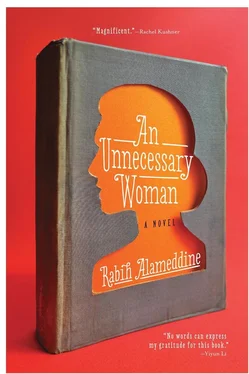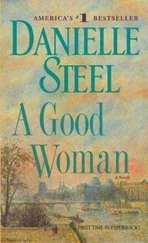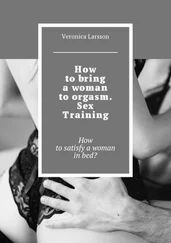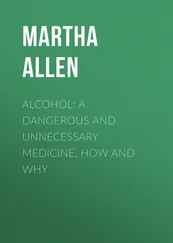I may be able to explain the difference between baroque and rococo, between South American magical realism and its counterparts in South Asia and sub-Saharan Africa, between Camus’s nihilism and Sartre’s existentialism, between modernism and its post, but don’t ask me to tell you the difference between the Nasserites and the Baathists. I do understand that this neighborhood can’t be Baathist; Sunnis are anti-Syria these days, and the need to belong to a party, any party, is greater than the fear of appearing stupid once again, hence Nasser is the hero du jour. However, I can’t figure out what the terms mean.
Samir Kassir, in his wonderful book about Beirut, differentiates them thus: Arab nationalists who converted to socialism and socialists newly alert to the mobilizing virtues of nationalism.
Decipher that.
Need I tell you that Baathists and Nasserites have killed each other by the busload?
One’s first response is that these Beirutis must be savagely insane to murder each other for such trivial divergences. Don’t judge us too harshly. At the heart of most antagonisms are irreconcilable similarities. Hundred-year wars were fought over whether Jesus was human in divine form or divine in human form. Belief is murderous.
After Hannah died, life became incomprehensible — well, more incomprehensible than usual. I confess that I went through some hard times, hard years. I grieved — whether I grieved enough is difficult to gauge. Life was crazy. Hajj Wardeh passed away that year as well, and I wasn’t sure if Fadia would try to evict me. My mother harped about my apartment. My half brothers tried to break my door and my spirit. It was not pleasant, and then war, the ultimate distraction, broke out. I plunged into my books. I was a voracious reader, but after Hannah’s death I grew insatiable. Books became my milk and honey. I made myself feel better by reciting jejune statements like “Books are the air I breathe,” or, worse, “Life is meaningless without literature,” all in a weak attempt to avoid the fact that I found the world inexplicable and impenetrable. Compared to the complexity of understanding grief, reading Foucault or Blanchot is like perusing a children’s picture book.
I flag a taxi. I’ll splurge. I must reach home. It is much too cold; the frost-laden wind is picking up speed, and there’s a slight downward slant to the road that makes it slippery. I can’t seem to feel the ground beneath these old feet. I must reach home.
The driver looks like he wants to talk. Whatever he has to say, I’ve heard it a million times before. Taxi drivers, the talkers, the storytellers of this chatty city, can never shut up once they get going. I take out Rilke from my purse and pretend to read. Community is not what I need right now.
The taxi makes slow progress in the coagulating pre-holiday traffic. All of Beirut is out shopping for the holidays. It has been so long since I’ve bought a gift for anyone. The sun falls, as does the rain; winter nights arrive without warning. Headlight beams refract on the windshield, creating mini rainbows. It takes the car half an hour to travel a distance I could have walked in the same amount of time. A far-flung flash of lightning, out of earshot, reminds me that the taxi was a good decision, even though I’m discomfited by the backseat’s worn-out springs.
The taxi slogs and stalls a couple of neighborhoods before mine. My back begins to ache. A brand-new hotel, muscular and gray, has sprung up on the street. I hear that one can sit in a hot tub on the top floor and observe all of Beirut through large circular windows, a sort of reverse submarine effect. On the ground floor, there’s an American diner and a gigantic fitness center. I can’t tell you how many people use the latter, but I envy their health. This has been a long day.
No matter where I’ve been or how long I’ve been away, my soul begins to tingle whenever I approach my apartment. The sharp turn that leads to my street, the brown-and-gray building that I call “the new one” even though it was built in the early seventies and is certainly no longer new, are signs that announce I am close. The pleasurable sensation of almost arriving and the impatience of not yet being there begin at those markers. My first act upon entering the apartment, after shutting the door behind me, is simply to drop on my sofa and rest. My home.
ô rage! ô désespoir! ô vieillesse ennemie!
The troubling sight of the recalcitrant wrinkles on my face holds me still. I stand transfixed before the mirror in my bathroom. I reach for my glasses to see more clearly. What happened to me? What happened to my face, so gaunt and inexpressive? The person looking back at me is a stranger. I’ve never had a flattering notion of my unprepossessing physical appearance, but now I seem more insignificant than ever, lifeless and without a spark or sparkle of intensity. I’m a wholly nondescript human.
I should ask my mother if she has a picture of my biological father — must do so before she dies. I want to know whether I look like him. I must. I have my mother’s nose, which these days looks like a scimitar buried in slain flesh. I try to reconstruct my father’s face, but nothing seems to work, of course. I was much too young. I may have seen a picture of him at some point, but I have absolutely no recollection. I do recall my mother then, how she looked when he died, but since it was so long ago, I assume that’s a reconstruction. I remember that my mother wouldn’t raise her head, kept her eyes down, her gaze on the ground, lower even, toward the center of the earth where Satan dwelled. She must have felt guilty about her husband’s death. If she had been a better wife, more competent, he wouldn’t have been snatched away from her. Had we practiced suttee, she would have willingly dived into the pyre headfirst, a forward two-and-a-half somersault.
Can I possibly remember this, or is it a jigsaw that I’ve forced together from bits and pieces of how I think it went? I continue to drop the wooden pail into the brackish well of my memories. There was a meal. My mother concentrated on the food, on the plate. I don’t think she ate. The memory seems both real and unreal, reliable and tenuous, solid and insubstantial. I wasn’t even two when he died. I must have configured these images much later. Childhood is played out in a foreign language and our memory of it is a Constance Garnett translation.
My features have blunted with the passage of time, my reflection only faintly resembles how I see myself. Gravity demands payback for the years my body has resisted it. Not just my breasts and posterior, but somewhere along the line the slightly swollen curves of my lips have straightened. I’ve also lost quite a few eyebrow hairs. They’re all white now. I’ve noticed the change in color before but not the sparseness. I used to have a pair of heavy lines for eyebrows. On the other hand, my melanin-deprived skin has accumulated a number of different colors. Two asymmetrical landlocked seas of purple and mouse gray spread under my eyes. A brindled barnacle clings next to my right ear. Temple veins and their tributaries are decidedly green.
I’m willing to swear that the bone structure of my face has shifted.
How can my breath hold out
Against the wreckful siege of battering days
When rocks impregnable are not so stout,
Nor gates of steel so strong, but Time decays?
I hear Joumana puttering in her bathroom above. If she’s following her usual schedule, she’s washing up before making dinner.
I must do something. I walk out of the bathroom to my reading room, to the compact disc player. I search for Chopin, find one of Richter’s recordings. My head slowly clears. Richter’s Chopin is inspiring.
Читать дальше












